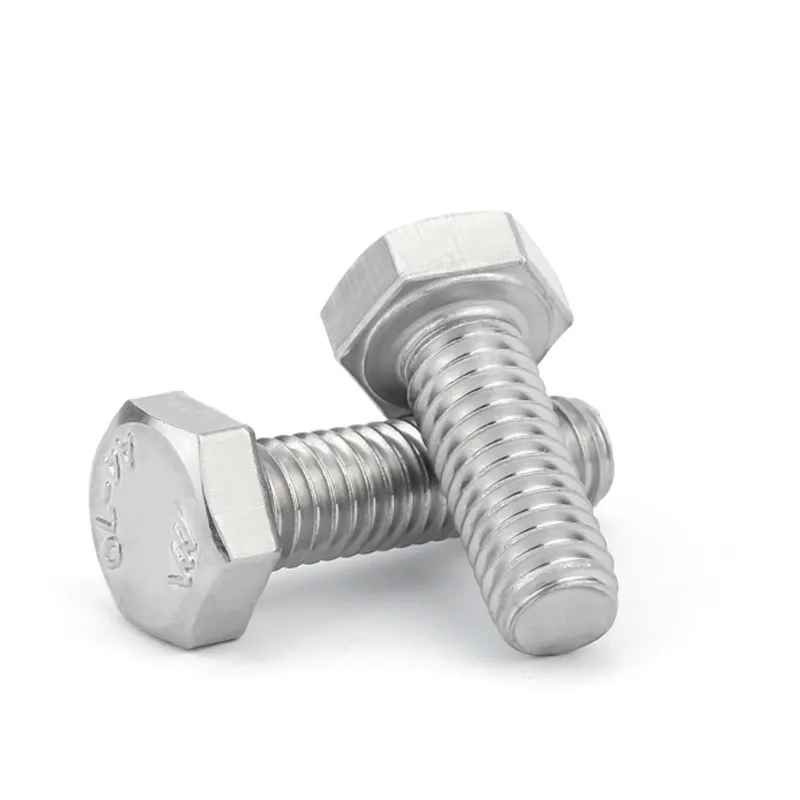

Understanding the Function and Benefits of Flanged Lock Nuts in Mechanical Applications
ต.ค. . 19, 2024 02:53 Back to list
Understanding the Function and Benefits of Flanged Lock Nuts in Mechanical Applications
Understanding Flange Lock Nuts Features, Applications, and Benefits
In the world of mechanical engineering and fastening technology, the flange lock nut plays a pivotal role in ensuring the stability and safety of various assemblies. Often used in conjunction with bolts, screws, and other fastening elements, these specialized nuts are designed to resist loosening under vibration and dynamic loads. This article delves into the features, applications, and benefits of flange lock nuts, highlighting their importance in various industries.
What is a Flange Lock Nut?
A flange lock nut, often referred to simply as a flange nut, is a type of nut that has a circular flange at one end. The flange serves to distribute the load over a larger surface area, which reduces the risk of damage to the material being fastened. The nut typically comes with a serrated or textured surface on its underside, which enhances grip and prevents movement once it has been tightened in place.
Flange lock nuts are usually made from high-strength materials such as steel, stainless steel, or other alloys, allowing them to withstand significant stress and strain. They are available in various sizes and thread types, making them versatile for different applications.
Key Features of Flange Lock Nuts
1. Vibration Resistance One of the primary benefits of flange lock nuts is their ability to resist loosening under vibrations. The serrated flange grips the surface of the material, which helps maintain tension.
2. Load Distribution The wide flange increases the surface area over which the load is distributed, reducing the likelihood of surface damage and allowing for a more secure hold.
3. Ease of Use Flange lock nuts can be quickly and easily installed without requiring additional washers or locking devices, saving time during assembly.
Applications of Flange Lock Nuts
flange lock nut

Flange lock nuts are utilized in a wide range of industries and applications due to their durability and reliability. Some common applications include
- Automotive Industry Used in vehicle assembly, flange lock nuts help secure critical components such as engines, transmissions, and suspension systems.
- Aerospace In aircraft construction, where safety is vital, flange lock nuts ensure that components remain tightly secured even in high-stress environments.
- Construction Flange lock nuts are widely used in structural applications, securing beams, frames, and equipment to ensure the stability of buildings and infrastructure.
- Manufacturing In machinery and equipment production, these nuts provide a reliable fastening solution for various components that experience regular movement and vibrations.
Benefits of Using Flange Lock Nuts
1. Increased Safety By preventing loosening, flange lock nuts enhance the safety of mechanical assemblies, reducing the risk of failures that can lead to accidents.
2. Cost-Effectiveness The reliability of flange lock nuts can lead to reduced maintenance costs, as there is less need for frequent inspections and replacements.
3. Time-Saving Assembly Their ease of use can streamline assembly processes, saving time and labor costs in production settings.
4. Improved Performance The combination of load distribution and vibration resistance helps maintain the integrity and performance of the assembled products.
In conclusion, flange lock nuts are an essential component in modern engineering, providing a secure and reliable fastening solution across various industries. Their unique features make them suitable for applications where vibration resistance and load distribution are critical. As technology advances, the design and materials used for flange lock nuts will continue to evolve, ensuring their relevance in the future of mechanical assemblies.
Latest news
-
Premium Fasteners Manufacturer | AI-Driven Solutions
NewsAug.01,2025
-
Hot Dip Galvanized Bolts - Hebei Longze | High Strength, Corrosion Resistance
NewsAug.01,2025
-
High-Strength Hot Dip Galvanized Bolts - LongZe | Corrosion Resistance, Custom Sizes
NewsAug.01,2025
-
Best Self Tapping Screws for Drywall - Fast & Secure Installation
NewsJul.31,2025
-
High-Strength Hot Dip Galvanized Bolts-Hebei Longze|Corrosion Resistance&Customization
NewsJul.31,2025
-
Hot Dip Galvanized Bolts-Hebei Longze Metal Products|Corrosion Resistance&High Strength
NewsJul.31,2025

